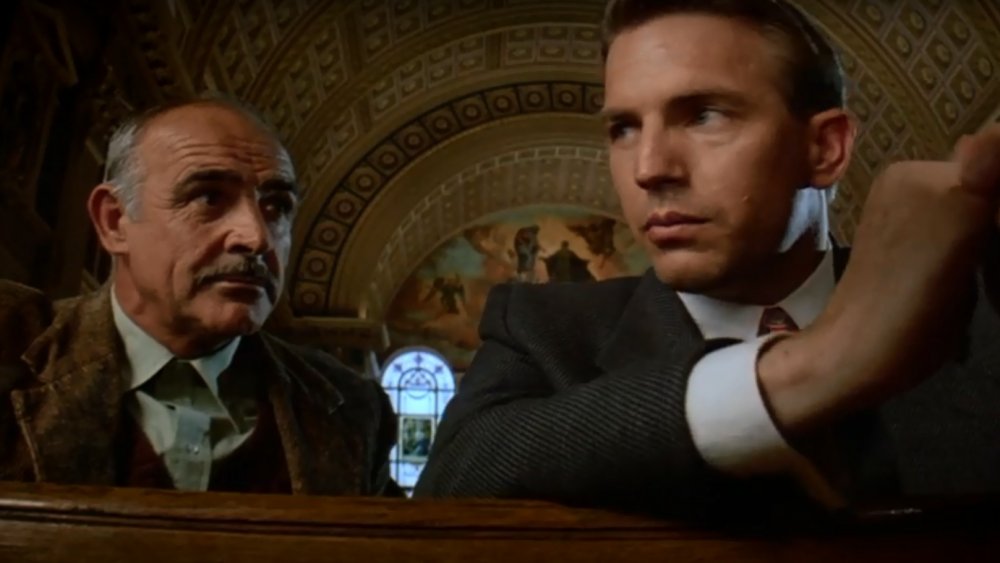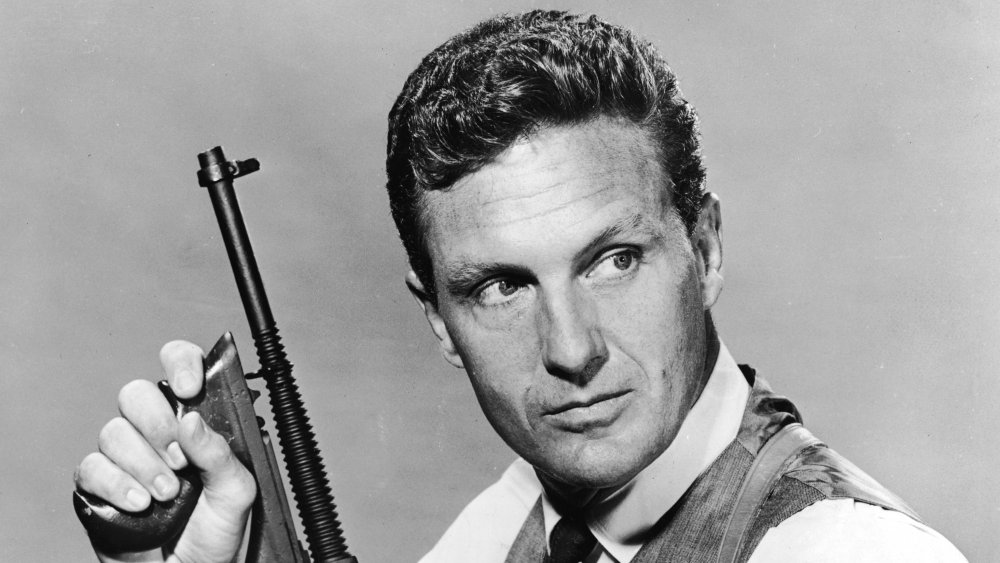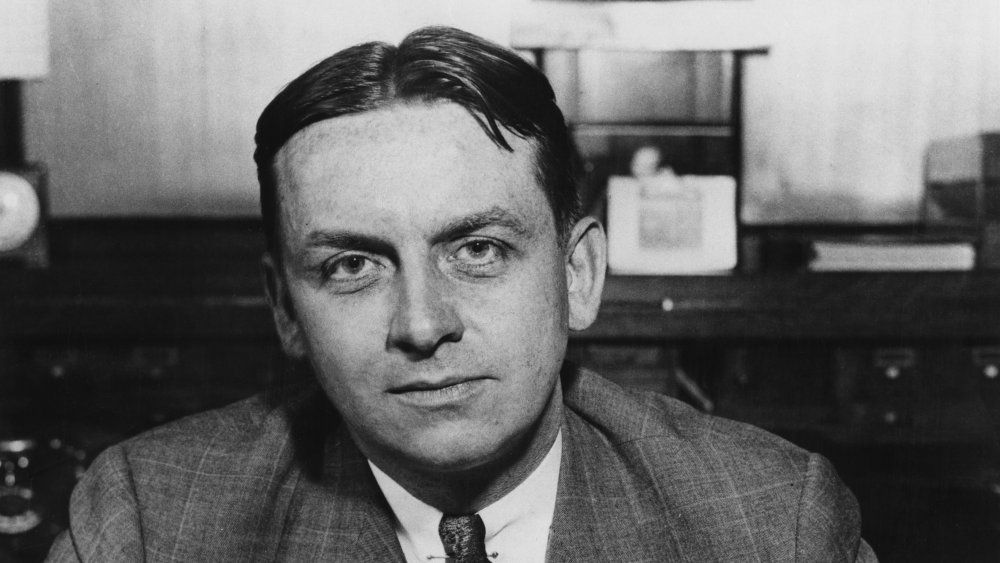The Tragic Story Of Eliot Ness
DeNiro and Costner and Connery, oh my! That was Brian De Palma's The Untouchables, a 1987 gangster movie based on a pretty nifty book called, appropriately enough, The Untouchables – an autobiography by the one and only Eliot Ness (with help from writer Oscar Fraley) about his role in Prohibition-era law enforcement.
Prohibition began with the Volstead Act of 1919. Organized crime, never one to turn up its collective nose at an opportunity for prosperity, especially of an illegal variety (remember the "crime" part of "organized crime"), took to supplying a thirsty nation with what it couldn't legally buy anymore. That meant running liquor from Canada, as well as illegal breweries and distilleries, not to mention hidden nightclubs, speakeasies, and other party establishments.
The Bureau of Prohibition was tasked with cracking down on the alcohol situation. Chicago was especially favored, partly because of the incredibly well-connected web of corruption exploited by such luminaries as Alfonse Gabriel Capone, aka "Scarface," aka "Al," aka "please don't shoot me."
Nessed to kill
Eliot Ness was a Prohibition agent working in Chicago. In his 20s, handsome, and with a knack for providing good newspaper quotes, Ness led a team that really did put a crimp on the bootlegging business. Breweries were destroyed, shipments confiscated. Although in the end it was accounting that took down Capone, Ness's activities couldn't have hurt. He took to calling his group The Untouchables, in part because they were considered beyond reproach and couldn't be bribed. Ness himself reportedly turned down a payoff greater than his annual salary.
The "untouchable" part has come into question in recent years. So have incidents in Ness's book, though other researchers claim the bulk of the story is essentially accurate, if somewhat mixed chronologically.
Capone went to prison and died of syphilis. Ness had a longer decline into obscurity.
The decline of Ness was a gradual process
He was refused a job with the precursor of the FBI in 1933, just as Prohibition was ending. Ness was transferred to Cincinnati, then Cleveland, still working for the Prohibition Bureau, renamed the Alcohol Tax Unit. He was appointed the city's public safety director in 1935.
Ness also turned into something of a party animal. The man who pursued illegal alcohol in Chicago was known for drinking and dancing long into the night. In 1942 he was involved in what was probably a drunk driving accident, though he blamed it on icy roads. He moved to Washington, D.C., where he became director of the Office of Social Protection, tasked with enforcing the May Act, which made prostitution near defense installations a federal crime.
By 1944 he was back in Ohio, serving on the board of the Diebold lock and safe company. He ran for mayor of Cleveland and lost in a landslide. By 1951 he had been forced out of Diebold for poor performance. On his third marriage, with a child to support, Ness was working as a not terribly effective salesman for a check printing company.
For his part, Oscar Fraley was a sportswriter who knew a potentially good story when he heard it. Ness talked, Fraley took notes and maybe dressed things up, here and there. The Untouchables was published in late 1957. Unfortunately, Ness had died of a heart attack earlier that year, aged 55.


